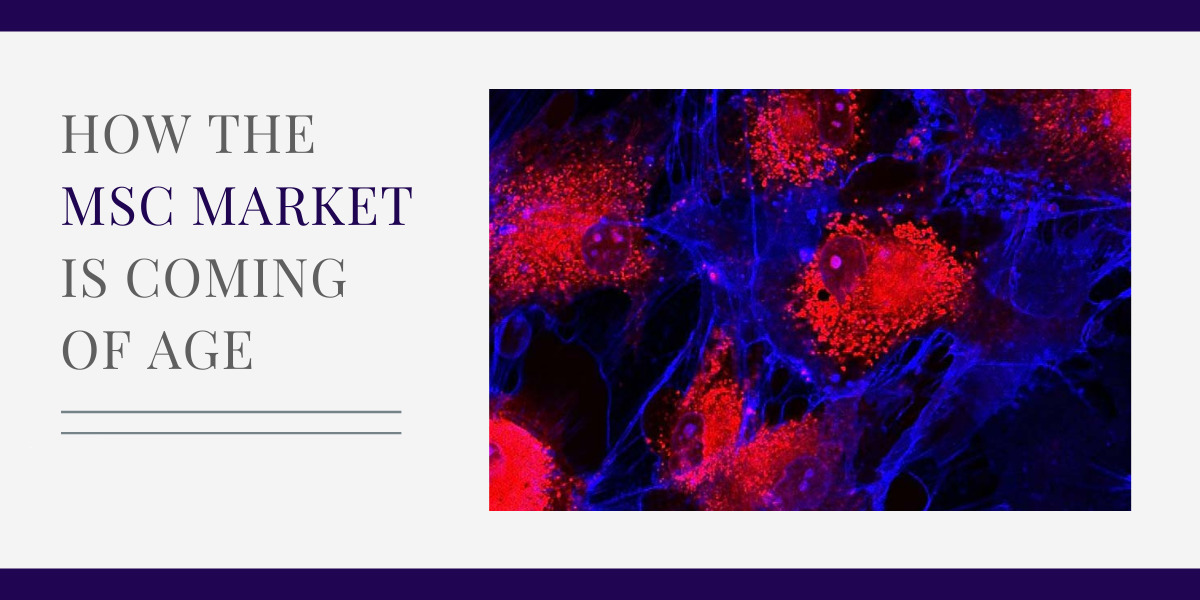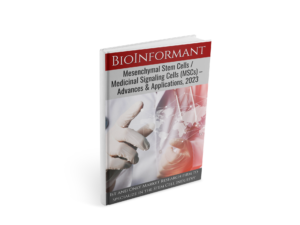|
|
MSCs are a class of multipotent cells that are readily found in umbilical cord tissue, adipose tissue, bone marrow, dental pulp, and periosteum (a type of connective tissue that envelops bone). These cells are often called by other names as well, such as Medicinal Signaling Cells, Mesenchymal Stromal Cells, Marrow Stromal Cells, and Mesenchymal Stem Cells, despite much controversy in the field about using this term.
MSCs represent a population of cells that have the potential to treat a wide range of acute and degenerative diseases. They are advantageous over other stem cells types for a variety of reasons.
First, they avoid the ethical issues that surround embryonic stem cell research. Second, repeated studies have found MSCs to be immuno-advantaged, which make them an advantageous cell type for allogenic transplantation. MSCs reduce both the risks of rejection and complications of transplantation. Recently, there have also been advances in the use of autologous MSCs to regenerate human tissues, including cartilage, meniscus, tendons, bone fractures, and more.
The Rise of MSCs
For a decade or so, MSCs were largely perceived to be a supportive, feeder layer for hematopoietic stem cells (HSCs). Then sentiment within the research community swung strongly in the opposite direction, with MSCs hastily labeled as stem cells, despite demonstrating a considerably limited differentiation potential. This characterization was misleading and drove research towards outcomes that involved semi-differentiated and often non-engrafting cells.
Because MSC differentiation does not explain the benefits of most MSC treatments, the answer to how MSCs exert their effects is still being explored across the public, private, academic, and government sectors.
Indeed, the traditional view that MSCs heal by maturing into replacement cells for damaged tissue is largely untrue. Current research now suggests that the power of MSCs stems from their ability to regulate the immune response and influence the human body’s own regenerative machinery.
This understanding is critical to pursing effective avenues for the commercialization of MSC products, technologies, and therapies.
MSCs as a Foundational Technology
In recent years, human MSCs (hMSCs) have become a foundational technology for many types of cell-based products. MSCs are multipotent progenitor cells with multilineage potential and the capacity to differentiate during development and in vitro into adipocytes, osteocytes, and chondrocytes, among other cell types.
Moreover, they are capable of migrating to sites of inflammation and exerting potent immunosuppressive and anti-inflammatory effects by interacting with lymphocytes associated with both innate and adaptive immune systems. They can be easily isolated from a variety of tissue sources and expanded for widespread therapeutic commercialization.
MSCs are being tested in record numbers of clinical trials as cell therapies, gene therapies, tissue-engineered products, and combination products. Most commonly, MSCs are being studied in clinical trials for indications that include orthopedic injuries, graft-versus-host disease (GvHD) following bone marrow transplantation, cardiovascular diseases, autoimmune diseases, and liver diseases. Gene editing of MSCs for overexpressing antitumor genes or therapeutic factors has further broadened their application.
MSCs Product Approvals
Regulatory agencies in Canada and New Zealand have approved Prochymal (Osiris Therapeutics), which contains allogeneic bone-marrow-derived MSCs to treat steroid-resistant GvHD in children.
South Korea has approved two MSC products: one is an allogeneic umbilical cord blood-derived MSC-based product (Cartistem) to treat degenerative arthritis and another is an autologous adipose tissue-derived MSC product (Cupistem) to treat anal fistulas in patients with Crohn’s disease.
Alofisel (TiGenix and Takeda, approved in Europe), Temcell (JCR pharmaceuticals, approved in Japan), Heartsheet (Terumo, approved in Japan), and Cellgram-AMI (FCB-Pharmicell, approved in South Korea) are other products made containing MSCs.
Another product candidate (MSC-100 IV) from Mesoblast is in a Phase III GvHD trial and has received a FDA Fast Track Designation.
MSCs Exosomes and EVs
Even if the MSCs do not engraft or persist long term, MSCs excrete extracellular vesicles (EVs) and exosomes that appear to produce paracrine effects after leaving the target site. Thus, there is accelerating interest in exploring MSC-derived exosomes and EVs for their potential as a cell-free alternative to traditional MSC-based therapies.
Exosome-related technologies have been developing rapidly in recent years and substantial growth is expected for the market as they get integrated into the fields of liquid biopsy, precision medicine and regenerative medicine. There is also a prolific body of research exploring how exosomes can be leveraged as biomarkers to detect cancer and other emerging disease states without the need for biopsy or invasive procedures.
While exosomes derived from multiple stem cell types are being explored, MSC-derived exosomes are best represented within the scientific literature, global patent activity, and clinical literature. Today, a market leader in MSC-derived exosomes is Kimera Labs, who manufactures placental MSC (pMSC) derived exosomes.
The Global MSC Industry
By early 2020, the COVID-19 pandemic began to ravage the globe, with researchers making a frantic search for vaccines and therapeutics to contain the spread of the virus. It took until December 2020 for vaccine products from Pfizer/BioNtech, Oxford University/AstraZeneca, Moderna, and Janssen to reach approvals in various geographic markets. A multiple of other vaccine candidates were also under development at the same time.
Despite vaccine advances, many patients with Acute Respiratory Distress Syndrome (ARDS) caused by COVID-19 are still experiencing devastating complications. Thankfully, numerous clinical trials are evaluating the use of MSCs for the treatment of ARDS.
Apart from the therapeutic applications, MSCs also find their applications within the cosmeceutical and food industries. L’Oréal and Johnson & Johnson are now focused on adding biological components, such as cytokines and growth factors from MSCs, to their personal care products and testing these products on bio-printed human skin models.
The clean meat industry is focusing on solving the global demand for meat innovatively by using MSCs as a raw material to produce engineered in vitro produced meat. Extensive research is being directed at using muscle precursor cells (satellite cells) and fat cells obtained from MSCs for this purpose.
The MSC industry is also witnessing a huge demand for cGMP bioprocess media and ancillary materials (AMs), such as reagents, while companies developing MSC manufacturing technologies are increasingly attracting investment. Examples of company leading the charge with industrial-scale manufacturing solutions include RoosterBio and Cynata Therapeutics.
RoosterBio, Inc. is a privately held cell manufacturing platform technology company whose products are high-volume, cost-effective, and well-characterized adult human MSCs paired with highly engineered media systems. Cynata Therapeutics is an Australian cell therapy company whose proprietary Cymerus™ technology utilizes iPSCs to economically produce nearly infinite numbers of iPSC-derived MSCs. The company can manufacture MSCs in unlimited quantities, in uniform batches, from a single donor, and at low cost – a powerful combination of advantages.





















Tell Us What You Think!